2024
10 books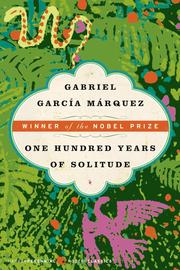
One Hundred Years of Solitude (1967)
★★★★★
Just wow. This is such a weird, fantastical and atmospheric book. It manages to build a complete world and atmosphere is so few words. One of the best books I have read.
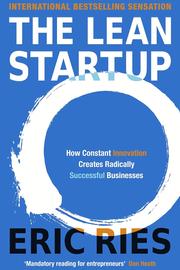
The Lean Startup (2011)
How Today's Entrepreneurs Use Continuous Innovation to Create Radically Successful Businesses
★★★
Basically, Agile but at a company level. It talks about experiments and fast iteration. There are a decent number of compelling ideas here.
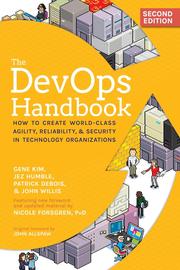
DevOps Handbook (2021)
How to Create World-Class Agility, Reliability, & Security in Technology Organizations
★★★★
Overall, a very comprehensive book. I wish the example went into more details about implementation. I have a ton of ideas from it but a lot of them lacked enough detail for me to actually implement them.
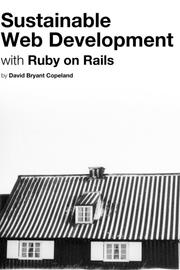
Sustainable Web Development with Ruby on Rails (2020)
Practical Tips for Building Web Applications that Last
★★★★½
I thought this book was a great read. It introduced a lot of patterns that make sense to me. It was opinionated that I felt like I could disagree with it but try the suggestions to see how they would work out.
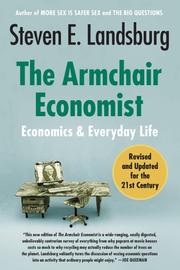
Armchair Economist (2012)
Economics & Everyday Life
★★
This book is incredibly pro free market. I found it to be interesting, but a lot of the ideas to be very challenging to accept. It certainly made me interested in economic theory simply for the sake of being able to figure out if I can disprove what the author was saying. And also some of the authors opinions seemed a little bit silly.
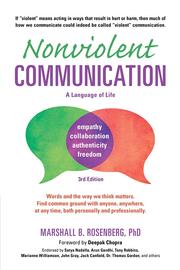
Nonviolent Communication (2015)
Life-Changing Tools for Healthy Relationships
★★★★
I found the book version of this way better than the audiobook which I had listened to in the past. Conceptually Marshall's ideas are certainly worth striving for but man I find them pretty difficult. I can certainly see the effectiveness.
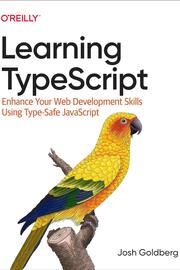
Learning Typescript (2022)
Enhance Your Web Development Skills Using Type-Safe JavaScript
★★★½
The book itself is fine. It does a solid job going over the type script type system. The real winner here is all the projects that Josh came up with. They do a phenomenal job solidifying your understanding of typescript concepts.

Metamorphosis (1915)
★★★★½
An absurdist story about a man turning into a bug. While simple conceptually it has so many layers to it. It is a very deep reflection on human nature. This book is all of 60 pages. So why not just read it?
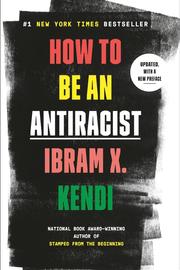
How To Be an Antiracist (2015)
Gave Up
Not that long ago I read 'Salt, Fat, Acid, Heat'. It is a cookbook where the author opens with a fairly extended section of personal anecdotes and some of the science behind cooking. The science isn't particularly well cited but I believe what is being said because the author builds up trust in themselves as an expert. 'How to be an Antiracist' is in my opinion a terrible book not because of any ideas in it but because the author does not convey anything in a convincing way. The citations are scant and not particularly authoritative. I don't consider the New York times or a book by someone to be authoritative sources on sociopolitical ideas. As in, they can be secondary sources, they could support ideas, but I expect empirical studies to form the foundation of the arguments. There was a point in the book where the income disparity between immigrant blacks and African Americans is brought up. My initial stance was that the reason for the disparity was probably self-selection among the immigrants. However, the author argues that same idea so poorly that I became less convinced of myself. The author's life story is the thread that ties the book together. However, some of the anecdotes are absolutely meaningless. They should not have been in this book. Anyone that reads a book with this title is already self-selecting, already going to be a group of people open to those ideas. The fact that I can take nothing away from this book means that it is a complete failure.
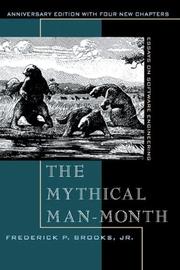
The Mythical Man-Month (1995)
Essays on Software Engineering
★★
It certainly an interesting book for my historical perspective. Surprisingly many of the core ideas still apply, the difficulties imposed by communication, the absence of a silver bullet and others. A lot of the book also covers technical details relevant to the time it was written: the 1970s. Those parts are lost on me. Overall, I think you could get the same ideas in a more modern book with significantly more relevant examples.
2023
14 books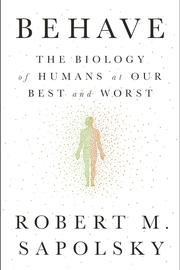
Behave (2017)
The Biology of Humans at Our Best and Worst
★★★★
A very detailed and far-reaching book by Robert Sapolsky. He starts with a single action and discusses what caused it. Starting at neuron impulses moving backwards to hormones and even further to evolution. It's slow, technical but it covers so much. I probably understood 40% of the book on my first reading and I felt like I gained a ton. I found some parts specifically the societal ones to be a bit less interesting. But the book ends on a very powerful note.
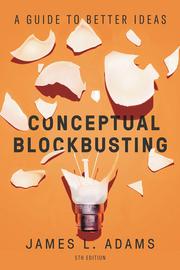
Conceptual Blockbusting (2019)
A Guide to Better Ideas
★★
Some portions of the book are definitely interesting. I was a fan of some of the exercises. The amount of group exercises the book calls for makes it seem a bit classroom oriented. I didn't hate the book but I thought it fell a bit short on bringing new things to the table. I felt like there was basically only one chapter that actually directly dealt with techniques to defeat conceptual blocks.
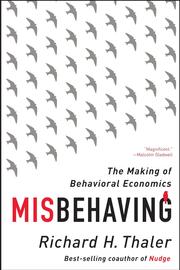
Misbehaving (2015)
The Making of Behavioral Economics
★★½
Overall, the book is fine and interesting. It is the story of Richard Thaler and his role in developing behavioral economics as a field of study. Unfortunately, the content has a lot of overlap with Thinking: Fast and Slow. Some of the other interesting stuff is passed over because it is in his other book Nudge. I did not glean much from this book, but some one that hasn't read Thinking: Fast and Slow would get a lot.
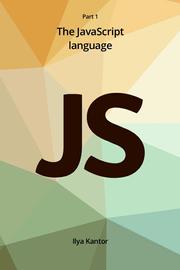
The Javascript Language (2023)
The Modern Javascript Tutorial
★★★★
Prior to reading this book I had used a ton of JavaScript for software development but I had never learned it per se. It was similar enough to ruby or python and I had seen a ton so I had no issues writing JavaScript. But I never really understood the internals of the language. This book does a phenomenal job explaining those internals. It seems to be very up-to-date. I am a big fan of the tasks associated with many of the chapters. I would highly recommend this as an introduction to Javascript.
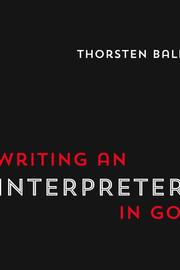
Writing an Interpreter in Go (2016)
★★★★½
The contents of the book should be pretty obvious from the title. That said, I really enjoyed it. It was super easy to follow. I had enough leeway throughout the book that I really felt that I understood the topic. I had a ton of fun reading this and following along.
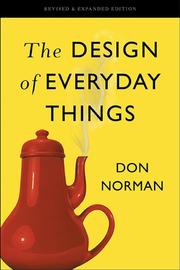
The Design of Everyday Things (2013)
★★★
The book was an interesting read with a decent amount of new information that I took away from it. However, given that it was a fairly technical non-fiction book, I really wish it had more sources for the information. I would have really enjoyed if there was more information about actual studies that got ran on design choices. That said, there's a surprisingly large amount in common between the process of design and software development.
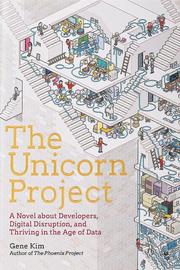
The Unicorn Project (2019)
A Novel about Developers, Digital Disruption, and Thriving in the Age of Data
★
Maybe it's because I read this book so soon after reading the first one, but I found the unicorn project very lacking compared to the Phoenix project. Because they share a timeline much of the plot is already known if you've read the first book. Well, the first book was a struggle of man versus technical debt, man versus poor practices. Practices this one had a lot of the same themes but also significantly more man versus man. I just didn't find those parts. Interesting. I also found the preachy bits much more common and bothersome in this book.
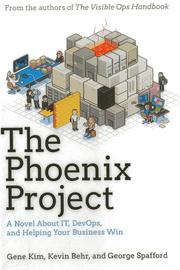
The Phoenix Project (2013)
A Novel about IT, DevOps, and Helping Your Business Win
★★★★
This was a super enjoyable book. It did a great job, essentially turning a DevOps playbook into a engaging and cohesive story. It was very fun to think about the problems being encountered and contemplate my own solutions. Then read about the book solutions. Unfortunately the book does get almost preachy at times, which makes sense because it is supposed to convey best practices. Although it kind of misses the mark as both a fiction and non-fiction book, it is still very enjoyable.
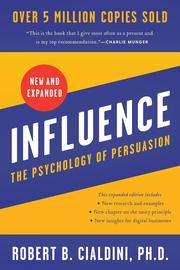
Influence (2021)
The Psychology of Persuasion
★★★★
Definitely one of the more interesting books I've read on how people's behavior is influenced. It is a great mix of individual case studies, scientific literature and general anecdotes. Chaldini does a phenomenal job making the topics understandable.
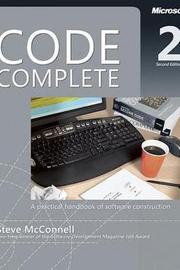
Code Complete (2004)
A practical handbook of software construction.
★★★★
Despite the book being almost 20 years old, the majority of the concepts that McConnell suggests still very much hold true even now. The main theme of the book seems to be the elimination of mental complexity in the code that we write. McConnell shows how to achieve this in all areas of software construction.
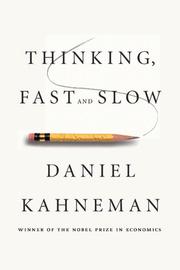
Thinking, Fast and Slow (2011)
★★★½
This book is the book to read if you are interested in the concept of prospect theory and the concepts of a system one and system two. The book is all about analyzing how people think about things subconsciously. Overall, I found a book to be very interesting and in many ways enlightening.
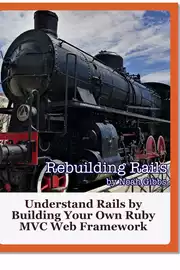
Rebuilding Rails (2012)
Understand Rails by Building your own Ruby MVC Web Framework
★★
The book wasn't bad. I enjoyed the exercises that each chapter had me doing. Despite going through the book, I somehow didn't feel like I learned that much. I'm not sure if it is my fault or the books, but some of the conceptual building blocks that it used were a bit murky to me. Which created shaky foundations for the rest of what the book was building.
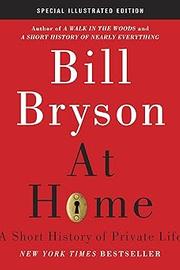
At Home (2013)
A Short History of Private Life
★★★
This book was full of fascinating histories of varying countries and objects. I think conceptually attempting to group it around a English house might have been a bit convoluted. Bryson also at times has a tendency to want to simply list out numbers. Overall, it is an entertaining read.
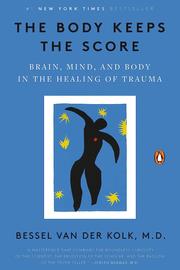
The Body Keeps the Score (2015)
Brain, Mind, and Body in the Healing of Trauma
★★★★½
I found this book to be incredibly enlightening. Everything comes back to trauma. This book really made me rethink my own actions and the behavior of others. It does slow down a bit at the end.
2022
4 books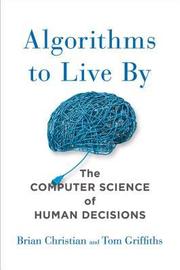
Algorithms to Live By (2016)
The Computer Science of Human Decisions
★★★★½
Amazing book. It does a great job of framing computer science concepts in ways that are very applicable to real life. It hooks you in from the very start with a discussion of the secretary problem. The problem goes: your interviewing people for a position, if you accept the person, you can interview no more. If you reject the person, you will never get a chance to hire them. How many people do you interview before making a selection? There is a concrete number at which you should make a decision. Read the book to find out what it is.
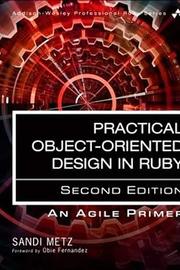
Practical Object Oriented Design in Ruby (2018)
An Agile Primer
★★★
This is a great book on object oriented practices. While the book itself is about Ruby and is in Ruby, the concepts go much further than that. While I don't write that much object oriented code, I definitely found this book to be enlightening. And Sandy Metz has a great grasp on object oriented concepts.
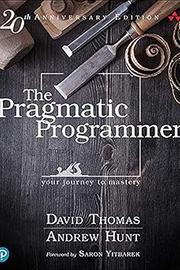
The Pragmatic Programmer (2015)
Your Journey to Mastery
★★★★★
Probably one of the best introductory the software development books I've read. It is incredibly easy to read. There are many examples. Frankly, at this point in my development career, I'm not sure I have gained enough experience to find any major flaws in it yet.
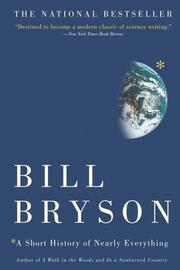
A Short History of Nearly Everything (2003)
★★★★½
Probably the best popular science book I've read. It does incredible job of covering the history of science from the creation of the universe all the way to the evolution of people. There are so many neat tidbits in this book.